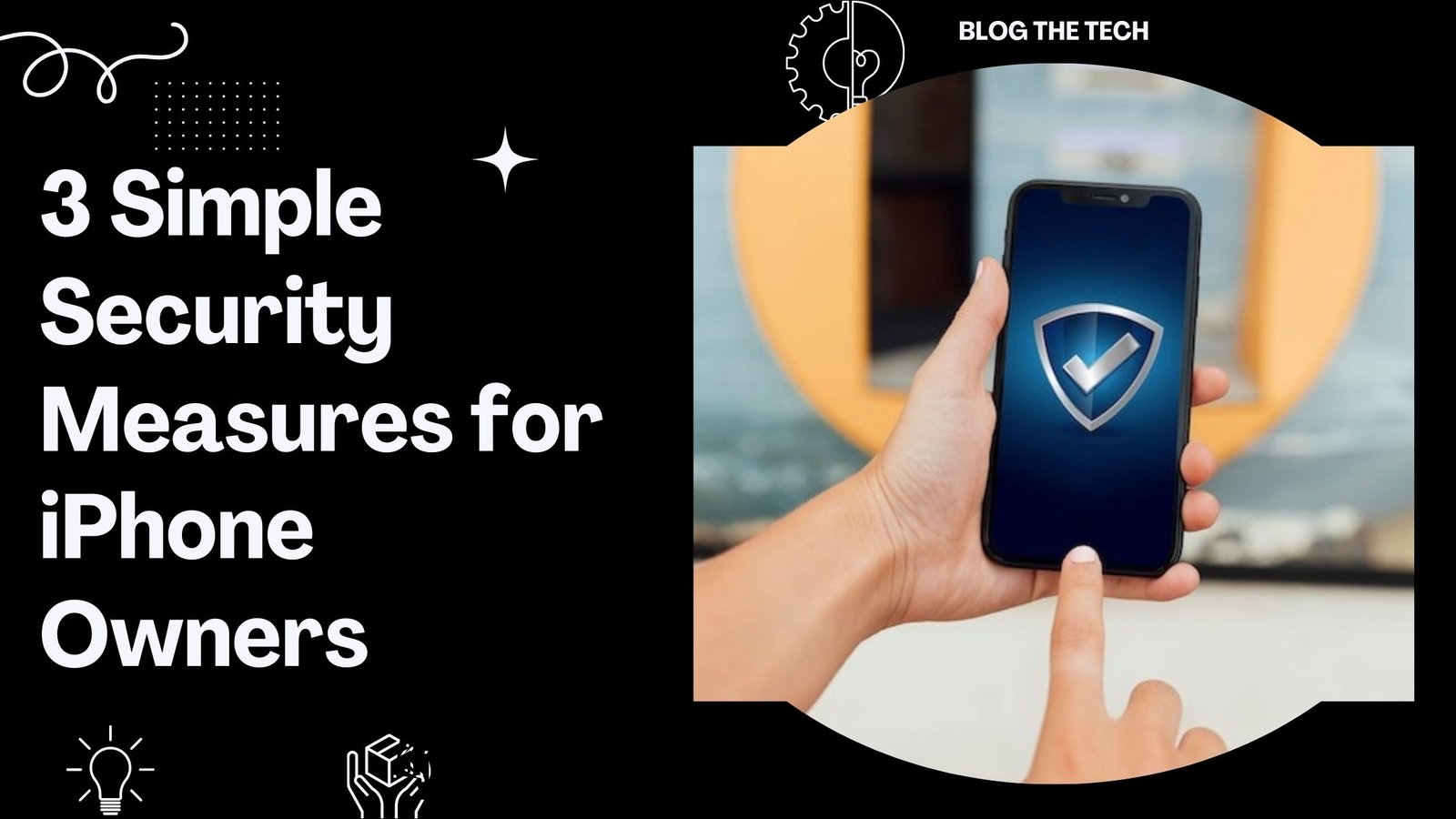If you own an iPhone, it’s critical that you take certain security precautions and set up security measures to keep your data protected. Smartphones can be hacked just like any other device, and if you don’t do anything to secure your iPhone, there’s a chance you could fall victim to a cyberattack.
Most iPhone owners go to great lengths to protect their phones, from getting insurance to rugged cases that will withstand drops and shocks. You’ve already spent good money on your device, so it’s reasonable to take security precautions as well.

3 Simple Security Precautions for iPhone Owners
How you protect your data is a personal choice, so here are several ways to secure your iPhone.
1. Don’t store passwords in your browser
The first on our list of security precautions is to never store your passwords in your browser. For instance, recently, many YouTubers have been getting hit with phony sponsorship opportunities that ask them to download and watch a .mp4 video.
This video file is actually a piece of malware called RedLine Stealer. When you attempt to open the file, it won’t open as a video. Instead, it installs the virus on your device and then steals saved passwords from web browsers along with cryptocurrency wallets and other applications that usually contain personal information. By the time you know what’s happening, it’s too late.
To protect your sensitive data, financial accounts, and other accounts don’t store any of your passwords in your browser. Yes, it can be a pain to have to type in a complex password every time you want to sign into an account, but it’s not worth the risk. At the very least, don’t save your online banking password or account credentials where your credit card is stored on file.
Don’t automatically trust others
The other reason to avoid storing your passwords in your browser is that you don’t know if or when someone will access your device and either retrieve your credentials or log in and cause trouble.
It’s not always malicious, either. You may have heard about the 6-year-old boy who ordered $1,500 worth of food just by playing with his father’s phone. The dad watched in total confusion as car after car pulled into his driveway, dropping off food all night long. The boy intentionally ordered the food – when confronted about what he had done, the child asked his dad if his pepperoni pizza had come. However, he didn’t understand why it was wrong.
Kids have no concept of money at a young age. If you save all your passwords in your browser, and let your kids play with your phone, you could end up with dinner for 50 people and a big debit from your bank account.
2. Limit the use of a password manager
Password managers sound like a good security precaution, but they aren’t inherently any more secure. For example, if you use Chrome with Google Password Manager, your passwords will be saved in your Google account, not locally on your device. This is convenient since you can sync your passwords across all devices. However, if someone hacks your Google account, they can access all your saved passwords.
Your master password can be hacked just like anything else on your computer. For instance, malware can retrieve it and so can a keystroke logger. Also, password managers can get hacked.
For example, OneLogin was hacked in 2017 and LastPass was hacked in 2015. At first glance, it seems like it shouldn’t be a big deal considering these companies encrypt their data. However, after the breach, OneLogin reported that hackers had access to decryption keys.
3. Keep your iCloud account active
When you own an iPhone, you have an iCloud account. Ensure to take the security precaution of knowing your Apple ID login information because if your phone gets stolen or lost, you can log into iCloud and erase your whole phone. If you find your phone later, you can restore your data from iCloud backups.
If your phone happens to be turned off, it will erase the next time it connects to the internet. This will happen even if your phone is locked. This is one of the best security features because it means you don’t have to worry about anyone getting your personal information or your client’s data if they steal your phone. This is especially important if you’ve signed NDAs with your clients.
Make security a priority
Don’t risk being caught off guard by a cybersecurity attack. If you’re really concerned about security, iPhones now have some powerful built-in security features, like physical keys and advanced encryption. No matter how you do it, prioritize securing your iPhone and you won’t need to worry about having your identity stolen, unauthorized purchases, or data loss.
